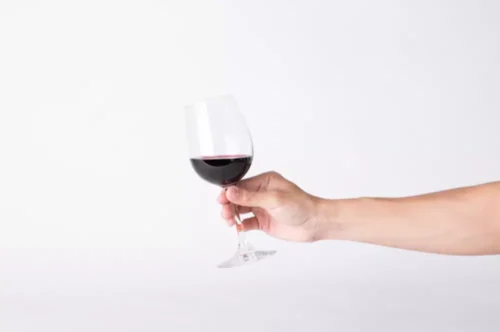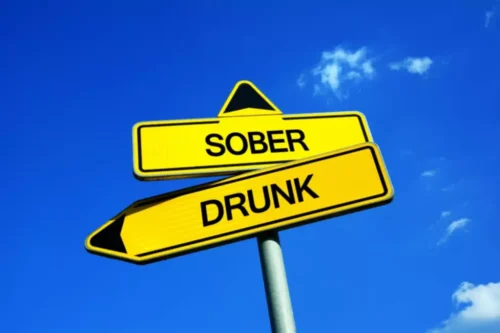
The CDC suggests a maximum of 2 drinks per day for men and only one drink per day for women. For those on Moderation Management plans, that means no more than 4 drinks in one sitting for men and 3 drinks in one sitting for women. According to this plan, men sober alcohol meaning and women shouldn’t drink more than 3-4 days per week. These official guidelines come from the non-profit Moderation Management. It has become a way for people to learn how to stop harmful patterns when they drink and identify triggers for those behaviors.
What Can I Drink Instead of Alcohol?
Recovery from drug addiction is not just a one-time event but a continuous process. It is the next step in the cycle of addiction that follows treatment for active drug addiction. You don’t need to avoid gatherings with alcohol entirely, but it does help to have a plan for how you’ll handle social settings where others are drinking. Perhaps you don’t miss alcohol much, beyond a brief twinge of nostalgia for the pleasant buzz that comes with a glass of wine. If you don’t find it difficult to go without, you likely have a healthy relationship with alcohol. If you want to join the official fundraising challenge to raise money for cancer support and treatment, you have the option to commit to 14, 21, or 31 days without drinking.
Physical Health
Our community is about connecting people through open and thoughtful conversations. We want our readers to share their views and exchange ideas and facts in a safe space. Alcohol use disorders, according to studies, affect one in eight adults in the United States, and for many sobriety is the only option for overcoming the disorder. With what is spent on DUI fees alone, you could potentially save for a family vacation, a new car, or have an emergency savings should any issues arise in the future. There’s a lot you can do to escape boredom without turning to alcohol. Picking up a new hobby or home project, for example, can help occupy your time more productively.
The Sober Diaries: My challenge has just started
- She’s acutely aware that a nightly glass isn’t doing her any favours where any of the above are concerned.
- Sobriety in this context is an active, ongoing commitment to a set of behaviors and actions that support overall health and prevent relapse, making it an integral part of the recovery journey.
- These effects can also be exacerbated if you have a mental health diagnosis like bipolar disorder, he says.
- Learn more about our approach to alcoholism treatment or call our admissions navigators 24/7 to discuss your options today.
Each time you want to drink, write down what you’re feeling, doing and where you are. It’s a potentially powerful way to understand your motivations and triggers to drink. For some, it’s anxiety and feeling down that calls for a drink, while others desire drinks for celebratory reasons or out of boredom. Knowing your reasons to drink and not to drink will help you find the resolve and real-time awareness to help meet your goals. And the market is changing to meet this new demand, according to Google Trends data. There was a significant increase in search interest for “non-alcoholic drink” and “non-alcoholic beer” in the U.S. in 2022.

What to Expect When You Stop Drinking

That way, you’re less likely to reach for a drink or head to a bar when those feelings get overwhelming. Emotional sobriety has also become a popular self-growth tool outside of just drinking habits for anyone who wants to get more in tune with what makes them tick. That self-control has to be a learned behavior for many drinkers looking to cut alcohol out of their lives. It’s about identifying triggers for alcohol use, like stress, sadness, or boredom, and coming up with coping skills or alternatives to drinking when faced with those triggers. At the most basic level, when you’re sober, you’re the opposite of drunk.

She still partakes in alcohol on the weekends when her anxiety level in general is lower. When it comes to being California Sober, you can make your own rules—it’s all about learning what makes you feel your best and ditching the labels. “When I drink, even if it’s just a glass of wine or two with dinner, I definitely notice that my quality of sleep goes down,” reports one semi-sober https://ecosoberhouse.com/ Coloradan, where marijuana is legal to buy recreationally. “If I skip the booze and take a few hits of my cannabis vape pen instead, I sleep like a baby and wake up feeling refreshed.” Brittany Burke Robert, the author of this article, has written about health for Oprah Daily, Well+Good, Livestrong, Reebok and other publications and digital brands for over 15 years.
Sobriety refers to a life free of alcohol and other mind-altering substances that can adversely affect your body, or in the short-term, it’s when you are not temporarily drinking. Keep in mind that alcohol alternatives shouldn’t be used as part of addiction recovery. (You shouldn’t be drinking anything that resembles alcohol if you’re an alcoholic, even if it’s alcohol-free.) They can be a positive addition to a sober curious lifestyle, though. On a deeper level, living a sober lifestyle can mean you choose not to drink alcohol for the long-term. That can be because of substance abuse issues or you just want to live healthier.
- There should be a gap of 8 hours between flying and drinking so that the effects of alcohol are gone for good.
- If PAWS is severe or if you’re experiencing prolonged symptoms, a medical professional can help you work through them and remain in recovery without relapse.
- You’ve never hit a real low, and you don’t see yourself as dependent on alcohol.
- Your primary care physician or insurance provider can also point you to local addiction treatment facilities or wellness centers that can work with you on your path to a clean and sober life.
- Relapse prevention in sobriety often involves a holistic approach, addressing both physical and emotional well-being.
Can Someone Be Considered Sober If They Use Medication-Assisted Treatment (MAT)?

If you’re weighing the benefits of short-term sobriety, Turner recommends focusing on what you’ll gain, not what you’ll lose. Regular social drinking has become so normalized that many people find it more unusual when someone chooses not to drink outside of health or religious reasons. This can include toxic relationships in which you feel unheard, misunderstood, unsupported, demeaned, unsafe, and/or attacked. Relapse (using substances again after stopping) can and does happen, with 85% of people experiencing relapse at least once and half of them doing so within the first two weeks of sobriety. One common mistake for those who are new to alcohol and drug recovery is substituting a new compulsive behavior for their old one. People new to recovery can find themselves approaching their new diet, exercise program, job, and even participation in support groups with a compulsion that echoes addiction.